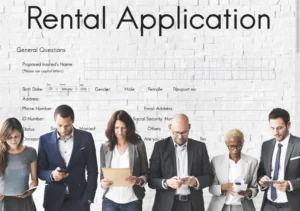Cities and States That Have Paused Evictions Due to COVID-19
The following list was last updated on April 7, 2020. To get a more recent version click here.
 Reactions to the COVID-19 outbreak have varied greatly around the United States. While some areas are under shelter-in-place orders, others are responding in different ways. All of us are feeling the impact. We decided to take a look at how eviction moratoriums are being put into place by cities and states. One of the challenges in pausing evictions is that how they are handled can vary both by state and by county.
Reactions to the COVID-19 outbreak have varied greatly around the United States. While some areas are under shelter-in-place orders, others are responding in different ways. All of us are feeling the impact. We decided to take a look at how eviction moratoriums are being put into place by cities and states. One of the challenges in pausing evictions is that how they are handled can vary both by state and by county.
As we previously reported, the Department of Housing and Urban Development announced that it’s suspending all evictions and foreclosures until the end of April. The Federal Housing Finance Agency directed Fannie Mae and Freddie Mac to do the same for a minimum of 60 days. The CARES Act puts a 120-day eviction moratorium in place nationally for tenants in properties that are part of government programs or that have a federally-backed mortgage loan.
The National Multifamily Housing Council put out a release on March 22 asking apartment owners and landlords to halt evictions for renters who were experiencing job loss or reduction in income due to COVID-19. The council went on to request a 90-day pause on all rent increases.
Reactions to the COVID-19 outbreak have varied greatly around the United States. While some areas are under shelter-in-place orders, others are responding in different ways. All of us are feeling the impact. We decided to take a look at how eviction moratoriums are being put into place by cities and states. One of the challenges in pausing evictions is that how they are handled can vary both by state and by county.
As we previously reported, the Department of Housing and Urban Development announced that it’s suspending all evictions and foreclosures until the end of April. The Federal Housing Finance Agency directed Fannie Mae and Freddie Mac to do the same for a minimum of 60 days. The CARES Act puts a 120-day eviction moratorium in place nationally for tenants in properties that are part of government programs or that have a federally-backed mortgage loan.
The National Multifamily Housing Council put out a release on March 22 asking apartment owners and landlords to halt evictions for renters who were experiencing job loss or reduction in income due to COVID-19. The council went on to request a 90-day pause on all rent increases.
Alabama
No eviction moratorium in place. Small businesses across Alabama impacted by the coronavirus pandemic are eligible for assistance through the Small Business Administration’s (SBA’s) Economic Injury Disaster Loan program.
Alaska
No formal eviction moratorium in place. Alaska Governor Mike Dunleavy released the Alaska COVID-19 Economic Stabilization Plan. He will sign an executive order stating that no evictions can be carried out on the 13,000 Alaskans who receive rental assistance through the Alaska Housing Finance Corporation for 60 days. The Alaska Housing Finance Corporation will suspend foreclosures and evictions.
Arizona
Governor Ducey issued an executive order on March 24 temporarily delaying evictions for people impacted by COVID-19 for up to 120 days. The tenant will need to provide documentation and will still be responsible for paying any rent owed. The Arizona Supreme Court gave the courts authorization to suspend mandatory timelines on eviction hearings. The Arizona Multihousing Association has urged tenants to reach out to their landlords and has encouraged landlords to work with tenants who are having issues.
Phoenix
Maricopa County Justice Courts will delay eviction hearings until at least early April. Phoenix Mayor Kate Gallego has said the city will pause all financial evictions on city-owned housing.
Tucson
Pima County Constables have filed a letter saying they will pause all evictions until they receive updates from the county health department and the Arizona Supreme Court.
Arkansas
No eviction moratorium in place. The state has made a request for disaster loans for small businesses and will allocate $12 million in block grant money and up to $4 million from the quick-action fund to provide bridge loans to help midsize companies and nonprofits.
Little Rock
The Metropolitan Housing Alliance has announced that public housing residents and Section 8 tenants in Little Rock will not be evicted during this time period. The housing agency will work with property management companies on rent forbearance.
California
Governor Gavin Newsom issued an executive order that authorizes local governments to pause evictions for renters. The protection is in effect through May 31, 2020, for now. Tenants are still obligated to pay rent, and landlords can still recover rent that is due.
Arcata
The city is discussing a moratorium on evictions. The Humboldt County Sheriff’s Office said that it will not be enforcing evictions “effective immediately until further notice.”
El Monte
The city has a 60-day eviction moratorium in place.
Fresno
The city of Fresno issued an order on March 20, 2020, stating that no residential tenants can be evicted due to loss of income related to the COVID-19 outbreak. Commercial landlords are also prohibited from evicting commercial tenants who own businesses that are closed, either voluntarily or by a mandate to reduce the spread of the virus. The tenant must notify the landlord and provide documentation. Tenants will have up to six months after the termination of the emergency declaration to repay back rent. The eviction moratorium is in effect for 30 days but could be extended.
Los Angeles
Los Angeles Mayor Eric Garcetti issued an executive order that no landlord can evict a residential tenant in the City of Los Angeles during the local emergency period. Tenants will have up to six months following the expiration of the local emergency period to repay any back due rent. The LA City Council is considering expanding the moratorium to 12 months.
San Bernardino
The San Bernardino City Council declared a local emergency on March 18 and plans to put an eviction plan in place.
San Diego
San Diego Mayor Kevin L. Faulconer announced plans to take immediate steps on a temporary eviction moratorium to provide relief to residents and businesses facing financial hardship related to the COVID-19 outbreak. The proposed ordinance will still require tenants to pay rent and allow landlords to recover rental fees at a future time.
San Francisco
San Francisco Mayor London Breed has enacted a moratorium on residential evictions as well as commercial evictions for small and medium-sized businesses impacted by the coronavirus crisis. It applies to all businesses with a license to operate in San Francisco that have less than $25 million in annual gross receipts. The residential moratorium began on March 13 and lasts for 30 days but may be extended.
San Jose
The San Jose City Council is expecting to create an eviction moratorium that will be in place for at least 30 days. Tenants will have to prove that their inability to pay rent is related to the coronavirus outbreak.
Rancho Cucamonga
On March 20, the Rancho Cucamonga City Council issued an eviction moratorium for both residential and commercial tenants impacted by COVID-19. Tenants must be able to provide documentation that the inability to pay is related to the coronavirus pandemic and must notify the landlord within 30 days after the rent is due. The ban will be in effect through May 31 for residential renters and April 30 for commercial tenants
Ventura County
A variety of cities in Ventura County, including Camarillo, Ojai, Oxnard, Thousand Oaks, Moorpark, and Simi Valley, have put an eviction moratorium for nonpayment of rent in place.
Colorado
No statewide eviction moratorium in place at this time. Colorado is part of the Small Business Administration (SBA) program offering emergency loans to small businesses.
Denver
Denver Mayor Michael Hancock announced that evictions are paused for now.
Connecticut
The state has paused hearings on eviction cases through March 27; however, landlords can still file new eviction cases. Housing advocates have asked for eviction moratoriums.
Delaware
The Delaware Justice of the Peace has paused all landlord/tenant proceedings through April 16, 2020, to be rescheduled for a date no earlier than May 1, 2020.
Florida
No statewide eviction moratorium in place at this time, but Governor DeSantis has said he will consider one. Florida is part of the Small Business Administration (SBA) program offering emergency loans to small businesses. Small-business owners with two to 100 employees located in Florida affected by COVID-19 can apply for short-term loans up to $50,000.
Broward County
Broward County has halted all residential eviction proceedings for the time being.
Orange County
The Orange County (Orlando) area has paused all evictions.
Seminole and Brevard County
Per Chief Judge Lisa Davidson of the 18th District, eviction and foreclosure proceedings in both Seminole and Brevard County are paused through April 15.
Georgia
No statewide eviction moratorium is in place at this time.
Atlanta
Atlanta Mayor Keisha Lance Bottoms has issued an executive order pausing residential evictions and filings for 60 days.
Hawaii
The Hawaii Department of Public Safety Sheriff Division is suspending all eviction activities.
Idaho
No eviction moratorium is in place yet. Idaho’s constitution requires eviction hearings to be completed within a specific time frame, and there has been no announcement of a change by the state government or legislature. Eviction hearings have stopped in Blaine County after an order from 5th District Administrative Judge Eric Wildman.
Boise
The city of Boise will waive rent for April in approximately 300 units of public housing and block evictions for any of its residents.
Illinois
Governor J.B. Pritzker issued an executive order pausing enforcement of residential evictions until April 8. The 10th Judicial Circuit has postponed all eviction court cases until April 17 in Peoria, Tazewell, Marshall, Putnam, and Stark counties. The U.S. Small Business Administration (SBA) has approved the state’s eligibility for disaster assistance loans for small businesses.
Chicago
In a press conference on March 19, Mayor Lori Lightfoot asked all property owners to “give tenants some grace” during this period. Eviction cases are handled in the Circuit Court of Cook County, which has paused eviction cases until April 15th.
Indiana
On March 20, Governor Eric J. Holcomb issued an executive order pausing evictions and foreclosures until the state of emergency is over. Tenants and homeowners will still be obligated to make up the payments. Public housing authorities have also been asked to extend deadlines for eligibility requirements for public housing.
Iowa
Iowa Governor Kim Reynolds has enacted a temporary suspension of some evictions and paused the commencement of foreclosure proceedings and the prosecution of ongoing foreclosure proceedings on residential, commercial, and agricultural real property located in the state of Iowa. The new rules are part of a state of public health disaster emergency plan set to expire on April 16, 2020, unless extended.
Kansas
Kansas Governor Laura Kelly signed an executive order on March 20 to order financial institutions to pause both business and residential evictions as well as mortgage foreclosures until May 1.
Kentucky
Kentucky Governor Andy Beshear has paused eviction cases.
Louisville
The Jefferson County Sheriff’s Office has suspended evictions.
Louisiana
Louisiana Governor John Bel Edwards announced on March 18 that the state is suspending foreclosures and evictions. Small businesses in all 64 Louisiana parishes will have access to federal Small Business Administration (SBA) disaster aid.
Maine
No statewide eviction moratorium in place. Courts are closed for eviction hearings until May 1, but courts are still issuing writs of possession, and in most counties in Maine, they are still being served.
Maryland
On March 16, Governor Larry Hogan issued an emergency order that stops Maryland courts from ordering the eviction of any tenant who can show that their failure to pay rent is related to the COVID-19 outbreak. The order is in place until the state of emergency is over.
Baltimore
In Baltimore County, all evictions are suspended while the county is under a state of emergency.
Massachusetts
The Massachusetts Legislature put out an emergency declaration that prevents evictions by sheriffs and constables as well as foreclosures of residential property. Small businesses in the state are also eligible for low-interest federal disaster loans through the Small Business Association. As of April 2, there are two bills in the House and Senate that could block landlords from charging late fees as well as providing eviction and foreclosure moratoriums for both residential and commercial tenants.
Boston
In a speech on March 17, Boston Mayor Marty Walsh stated he is working with housing advocates, property owners, and the Boston Housing Authority to halt all eviction proceedings until the coronavirus outbreak is over. His office is also working with lenders and landlords to prevent loan defaults and evictions for small businesses. The city is under a state of emergency until May 4. The Boston City Council passed a non-binding resolution calling for a 90-day pause on evictions and foreclosures.
Michigan
Governor Gretchen Whitmer issued an executive order on March 20 temporarily halting evictions for nonpayment of rent through April 17. The order allows tenants and mobile home owners to remain in their homes and allows courts to delay eviction-related proceedings. The governor has also extended the tax foreclosure deadline.
Minnesota
The Minnesota Legislature has introduced a bill that includes a moratorium on evictions. The bill blocks rental property owners from filing for eviction for 30 days in places where public health emergencies have been declared. Late fees on unpaid rent could not be charged for 60 days. The bill also includes the creation of a temporary housing assistance program.
Mississippi
No eviction moratorium in place currently, although some state activists are calling for one.
Missouri
No eviction moratorium in place. Eviction proceedings in court are currently suspended in Jackson County. Tenants have asked Governor Mike Parson for a statewide moratorium.
Montana
No eviction moratorium is currently in place. The Montana Legal Services Association recommends you work directly with your landlord if you are a tenant.
Nebraska
No statewide eviction moratorium is in place currently. Over two dozen state advocacy groups have asked for a pause in evictions. Governor Pete Ricketts said he is looking into who has the authority to halt eviction proceedings on a state level.
Nevada
No statewide eviction moratorium in place. The Nevada Housing Rights Coalition has asked local governments to enact a statewide moratorium on evictions. Nevada has received statewide approval for U.S. Small Business Administration (SBA) low-interest federal loans for small businesses suffering substantial economic injury as a result of COVID-19.
New Hampshire
On March 17, New Hampshire Governor Chris Sununu issued an executive order saying that landlords will not be allowed to start eviction proceedings for any tenant unable to pay due to the impact of the coronavirus and that foreclosures will also be frozen.
New Jersey
New Jersey Governor Phil Murphy issued an executive order on March 19 pausing evictions and foreclosures for 60 days after the state Senate passed a bill to give him the authority to make changes. Murphy has also requested that lending institutions work with borrowers who are experiencing hardship.
New Mexico
No statewide eviction moratorium in place. Anyone who has received an eviction notice is asked to call the state’s COVID-19 general hotline at 833-551-0518.
Albuquerque
The City of Albuquerque has stopped evictions on all public housing for nonpayment. Judges hearing eviction cases can grant continuances.
Santa Fe
Santa Fe Mayor Alan Webber has frozen both residential and commercial eviction indefinitely as well as putting a moratorium on water shut-off.
New York
Governor Andrew Cuomo has enacted a three-month suspension of all commercial and residential evictions. The state will also suspend mortgage payments for people who are out of work for 90 days.
New York City
Although evictions are paused, New York landlords can still file new eviction cases even though all new cases are being postponed for at least 45 days. A hotline run by Housing Court Answers at 212-962-4795 offers advice and resources. On March 27, Mayor Bill De Blasio called for a rent freeze for tenants in nearly 1 million rent-stabilized housing units for the coming year.
North Carolina
An order from North Carolina Chief Justice Cheri Beasley on March 13 paused all eviction and foreclosure cases for 30 days. Representative Alma Adams has asked for a 90-day moratorium on evictions, foreclosures, and utility shut-offs.
North Dakota
No eviction legislation in place yet, but the High Plains Fair Housing Center has asked North Dakota Governor Doug Burgum to enact an eviction moratorium.
Ohio
There is no statewide eviction moratorium in place. Chief Justice Maureen O’Connor of the Ohio Supreme Court has asked municipal courts to limit eviction and foreclosure proceedings.
Cleveland
There isn’t a formal ruling in place yet, but Cleveland City Council President Kevin Kelley has announced that the city will suspend evictions due to economic hardship caused by the impact of the coronavirus. Kelley has asked the Cleveland Municipal Housing Court to stop eviction proceedings.
Oklahoma
There is no statewide eviction moratorium in place. Oklahoma County Sheriff P.D. Taylor has suspended the enforcement of residential evictions, and Tulsa County announced a two-week moratorium on evictions.
Oregon
Oregon Governor Kate Brown has said the state will move forward with an eviction moratorium but hasn’t released any details yet.
Portland
The Portland City Council is reportedly open to considering a citywide eviction moratorium.
Pennsylvania
The Pennsylvania Supreme Court has closed all courts and ruled that state residents can’t be evicted from their homes or businesses through April 3.
Philadelphia
Most foreclosure proceedings have been suspended. All evictions are on pause until at least March 29, and the Philadelphia Housing Authority has also updated its eviction policies.
Rhode Island
Rhode Island Governor Gina M. Raimondo has announced that state courts will not process any residential or commercial evictions for the next thirty days.
South Carolina
South Carolina Chief Justice Don Beatty has paused all eviction proceedings in county magistrate court that don’t involve “essential services and/or harm to person or property.”
South Dakota
No eviction moratorium yet. South Dakota small businesses are eligible for the Small Business Association’s Economic Injury Disaster Loans, which offer up to $2 million in assistance per small business to pay fixed debts, payroll, accounts payable, and other bills that can’t be paid because of the disaster’s impact. The interest rate is 3.75% for small businesses without credit available elsewhere; businesses with credit available elsewhere are not eligible. The interest rate for nonprofits is 2.75%.
Tennessee
The Tennessee Supreme Court has suspended most in-person court proceedings, including eviction cases.
Nashville
Nashville was already recovering from the impact of a tornado on March 3. Mayor John Cooper has announced that the Davidson County Sheriff’s Office would stop serving evictions for victims of the tornado or who are dealing with the COVID-19 outbreak.
Texas
On March 19, the Texas Supreme Court issued an order stopping eviction proceedings for the next 30 days, until April 19. There are exceptions for criminal activity or if the tenants “pose an imminent physical threat.”
Utah
There is no statewide eviction moratorium in place, although courts have paused eviction proceedings in many counties. The Utah Apartment Association is creating rent deferment plans for renters who can show that their income is affected by the COVID-19 pandemic.
Vermont
No statewide moratorium on evictions in place, but several groups, including Vermont Legal Aid, have asked for one. The Vermont Supreme Court has declared a “judicial emergency” and has suspended all nonemergency court hearings, including eviction hearings, in response to COVID-19.
Virginia
The Supreme Court of Virginia has suspended all new eviction cases in the Commonwealth of Virginia for tenants unable to pay rent as a result of COVID-19 through April 6.
Washington
Governor Jay Inslee has prevented residential landlords from serving a notice of unlawful detainer for default payment of rent for the next 30 days. Additionally, law enforcement may not enforce eviction orders based solely on nonpayment of rent. Up to $5 million of the Governor’s Strategic Reserve Funds will be made available as small grants to small businesses across the state to help prevent closure due to COVID-19.
Seattle
Seattle Mayor Jenny Durkan issued a moratorium on residential evictions for nonpayment until termination of the civil emergency declared on March 3, 2020, or 30 days from the effective date of the Emergency Order on March 13. It blocks landlords from issuing a notice of termination or initiating an eviction for nonpayment of rent. It also blocks late fees or other charges due to late payment of rent during the moratorium.
Washington, D.C.
The D.C. Supreme Court has suspended evictions of all tenants and foreclosed homeowners.
West Virginia
No statewide eviction moratorium is currently in place. West Virginians in need of assistance with an eviction are encouraged to call 2-1-1 or visit WV211.org.
Wisconsin
As of March 27, Governor Tony Evers issued an executive order prohibiting landlords from terminating tenancy for failure to pay rent. Both evictions and foreclosures are paused for 60 days.
Wyoming
No eviction moratorium is in place as of now. Wyoming small businesses are now eligible to apply for up to $2 million in Economic Injury Disaster Loans designed to help small businesses and private nonprofits that have suffered substantial economic injury as a result of COVID-19.
Updates:
3/23/2020: The Chicago entry has been updated to reflect information on the Cook County court system.
3/24/2020: Added information on evictions in Florida’s Broward, Brevard, and Seminole counties. Added information on Rancho Cucamonga, California.
3/25/2020: Updated with new information on Arizona.
3/26/2020: Updated with new information from Hawaii.
3/27/2020: Updated with new information from Wisconsin.
3/30/2020: Updated with rent freeze information for New York City.
04/03/2020: Updated with new proposed legislation for Massachusetts
Source: fool.com













 Accessibility
Accessibility